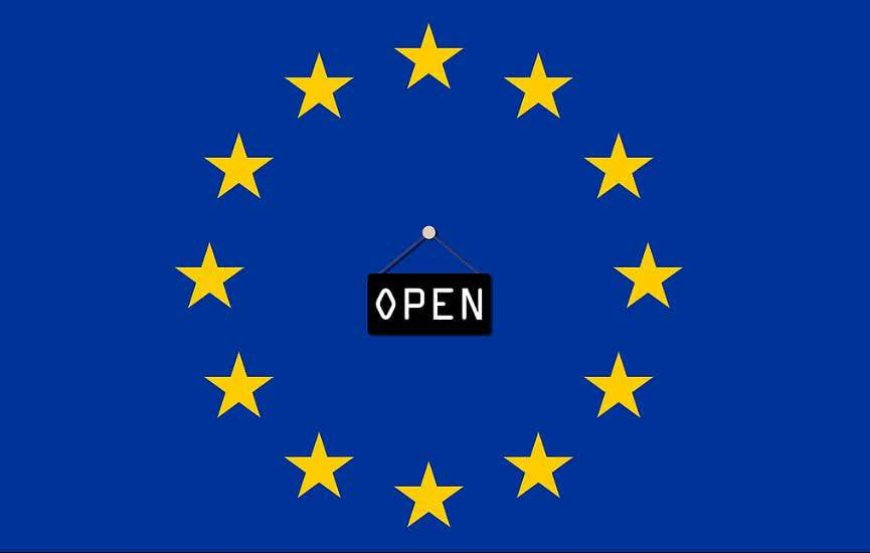The Complex Landscape of EU Enlargement: Navigating Symbolism, Realpolitik, and Core Principles
The concept of expanding the European Union (EU) has long been a subject of intense deliberation, as this union perpetually seeks to extend its sphere of influence. However, it is in the backdrop of the Ukrainian conflict that the EU's pursuit of expansion has gained unprecedented momentum, signaling a profound shift in its approach. The central question that emerges is whether the EU will succeed in this ambitious endeavor, given the multitude of obstacles that lie ahead.

A significant precondition for a new country to join the EU is the unanimous agreement of all existing members. Undoubtedly, this requirement poses a formidable challenge, necessitating meticulous and often arduous discussions to achieve consensus. For instance, Hungary's president, Viktor Orbán, has made explicit demands for Ukraine's inclusion in the EU, threatening to impede the membership process should these requests be overlooked.
Furthermore, cultural and social challenges loom large when contemplating EU membership for certain countries. Eastern European nations, characterized by their more traditional and religious cultural fabric, find themselves grappling with the acceptance of certain cultural and social amendments prescribed by the EU. This non-conformity assumes paramount importance for Europe and its democratic values. Critics, including numerous EU experts, contend that hastening the expansion of the union, irrespective of its principles, heightens the risk of its eventual collapse. This faction argues that aspiring member states should first align themselves with the fundamental tenets of the EU before embarking on the path to integration. Consequently, the EU confronts a plethora of internal and external challenges that could potentially impede the pace of its expansion.
Is there a genuine political will within the EU to pursue enlargement? This question assumes immense significance when contemplating the union's expansion efforts. Some experts posit that the EU lacks the requisite political resolve, instead resorting to an intricate web of bureaucracy and technicalities to obfuscate this issue. A glaring example of this is the Western Balkan countries, which have languished in a state of limbo for over a decade, awaiting EU membership. The promises made by the EU to these nations ten years ago remain unfulfilled, and the outlook for their future accession appears hazy at best. Europe's waning influence in the Western Balkans, largely attributable to unmet promises, underscores the extent of this predicament. The EU's proclivity for entangling these countries in stringent membership terms and conditions serves as a smokescreen, effectively deflecting accountability. At the crux of this matter lies a palpable lack of political determination among EU leaders.
Another critical factor at play is the absence of cohesive leadership within the EU. Several years have passed since Mrs. Merkel's departure, yet this leadership vacuum remains unfilled. This void has left Europe struggling to define its interests coherently. Moreover, the EU places significant emphasis on economic considerations when evaluating new member states. The potential economic and political benefits arising from a country's membership serve as pivotal criteria. However, the conferring of candidate status upon Ukraine, Moldova, and Georgia represents a shift towards prioritizing geopolitical significance. Yet, the EU's sincerity in this regard warrants scrutiny. Ukraine's prospective membership, given its substantial population and agriculture-centric industry, necessitates extensive revisions to the EU's agricultural laws and budgets. This, in turn, can pose challenges for existing members, as Ukraine's agricultural production and harvest carry the potential to disrupt the delicate agricultural equilibrium within the EU. Consequently, the EU must undertake a series of structural changes to ensure equilibrium.
In light of these considerations, it becomes apparent that the EU's granting of candidate status to new countries, while symbolically significant, may not reflect a genuine political determination on its part. Moreover, the cumbersome nature of the membership process has diminished the allure of EU accession as countries increasingly seek alternative avenues for constructive cooperation, irrespective of formal membership. Countries like Ukraine and Moldova would be wise to recognize the limitations of the EU's promises and explore other cooperative options to foster their own development, thus avoiding the purgatory of perpetual waiting. The Western Balkans should not be condemned to a similar fate.
In conclusion, the EU's pursuit of expansion faces a myriad of challenges, both internal and external. While the ambition to increase geopolitical significance is commendable, genuine political will, meticulous introspection, and a more nuanced approach are imperative. The EU must navigate these hurdles adeptly, lest it compromise its core principles and endanger the very fabric of the union. As the EU grapples with these complexities, it stands at a crossroads where strategic foresight and inclusive decision-making will determine its trajectory and ultimate success in the pursuit of enlargement.













































